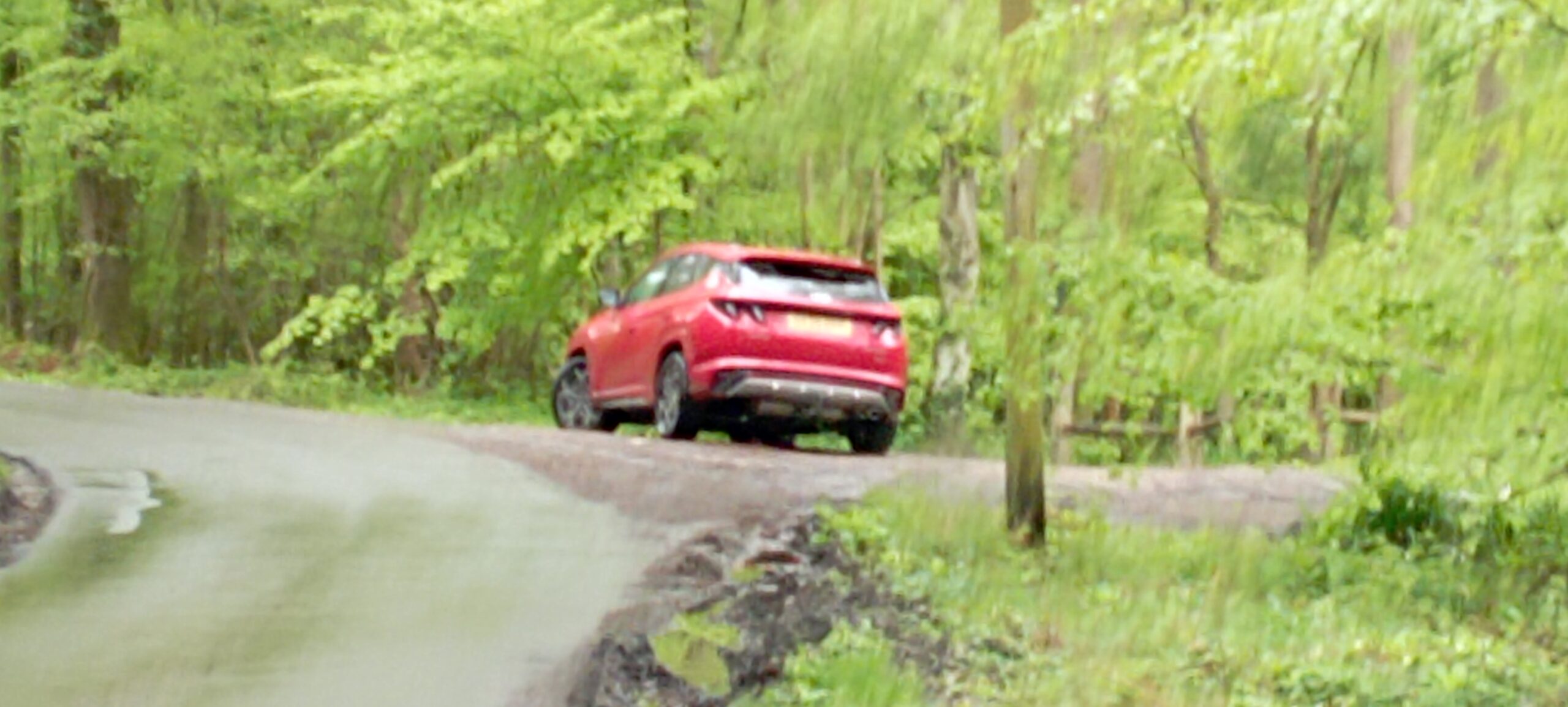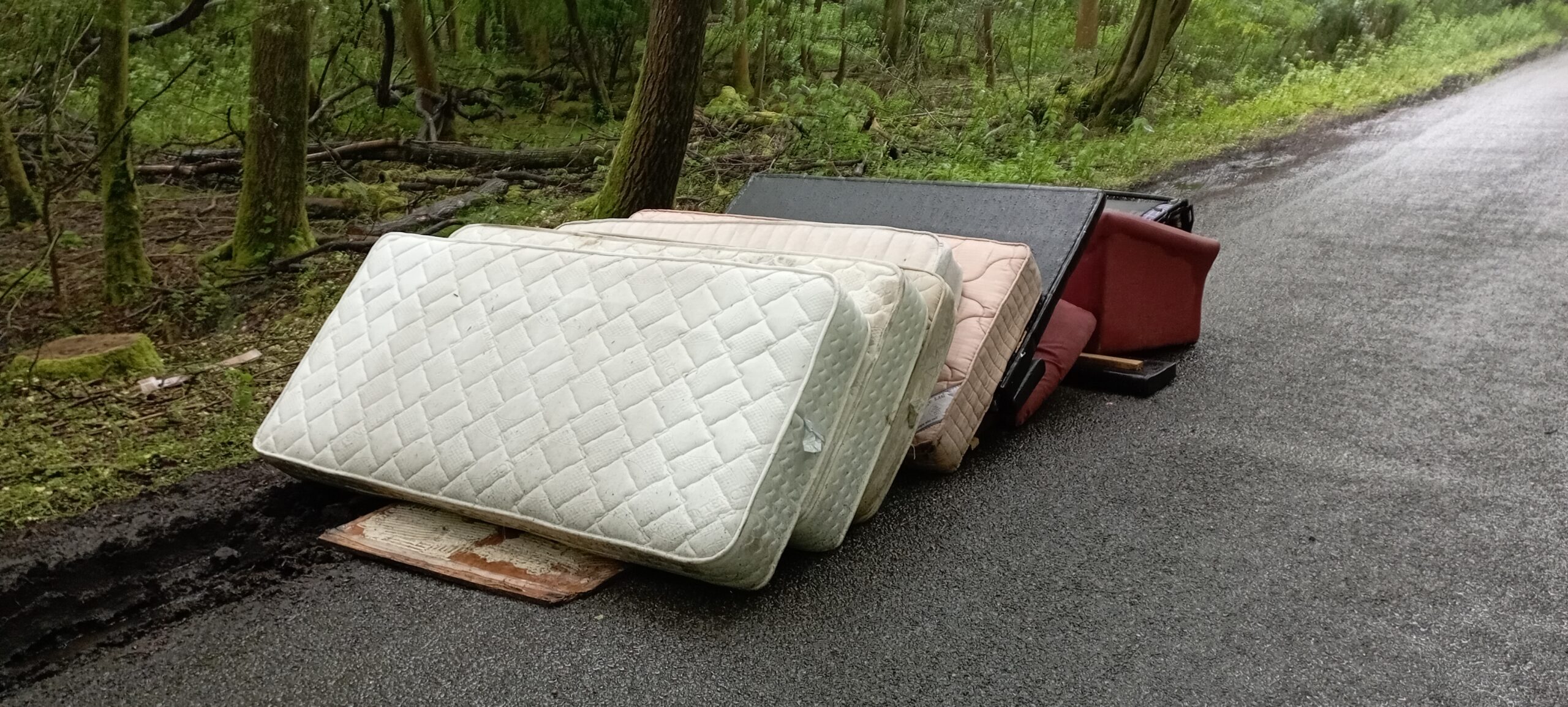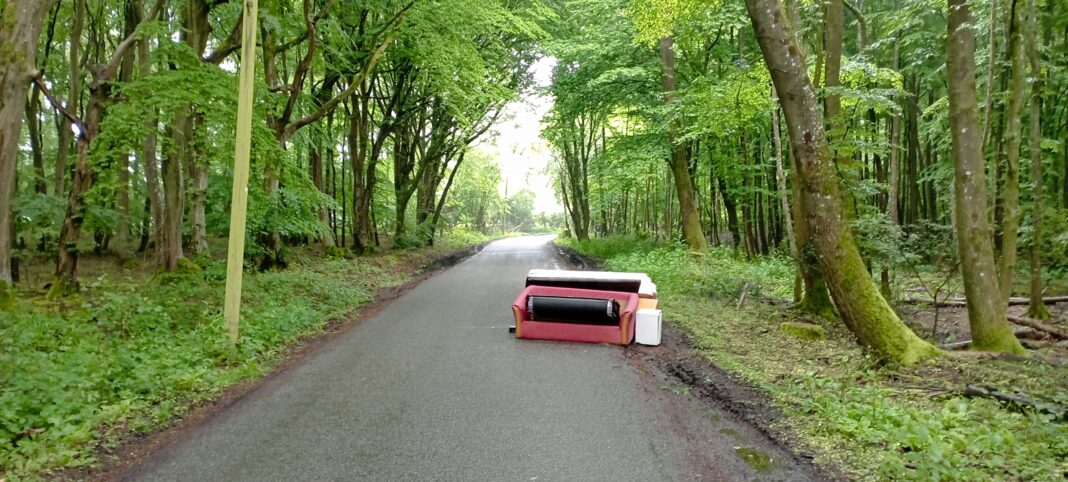One of the reasons many choose to live in this part of East Sussex is the beautiful countryside which surrounds us: many acres of woodland, with bluebells, primroses and swathes of wild garlic, and home to all sorts of living creatures; acres of lush green pasture which feed the livestock; rolling hills with amazing sunrises and sunsets; and the coast with its exceptional beaches.

What I cannot get my head around is why some people just don’t appreciate all these wonderful assets we have at our fingertips – the winding country lanes, footpaths, bridal ways and so many beautiful views. One very popular lane in rural Peasmarsh, which runs between the villages of Beckley and Peasmarsh, has recently attracted interest for a more sinister reason: fly-tipping.

Two weeks ago I witnessed a fly-tipper unloading black bags of household waste, not from a rusty old transit van but from the boot of his very shiny car and the perpetrator was very smartly dressed. As I was already late for work time was very limited but time enough to get a photo and send it to Rother District Council who jumped straight onto it and the rubbish was cleared within days.

Two days ago in a different section of the same lane, I saw what you now see in these photographs. Not a few bags thrown onto the verge but in the middle of the road were no less than 5 mattresses, one fold away bed and a couple of bedside cabinets, nearly enough to furnish a studio flat!
Not only were the items illegally dumped but the dumpee had given no thought to the potential danger they caused to motorists and to animals, who often roam along this lane.

You have to ask yourself, if they had the means to bring these large items to the woods they must have had the means to take them that little bit further and drop them at the tip. Why risk getting caught fly-tipping when there is an alternative? Fly-tippers like this have no scruples or ethics but why should they expect someone else to clear up after them?
You could argue that if the cost of collecting large unwanted items was more attractive, fly- tipping might not be such a problem. Or perhaps does the owner of the items think they have been disposed of responsibly having called in a firm ‘specialising’ in rubbish clearance?
Who knows, but all I do know is that before you could blink, Rother District Council had sent out a team to collect all the mattresses and rubbish so well done Rother District Council for acting so quickly. It proves the system works but it’s just a shame we need a system at all.
In the meantime life has returned to normal … until the next fly-tipper arrives.
Image Credits: Nick Forman .




Looks like you got a number plate?
I wonder if this is the widely predicted result of removing recycling points around the area because people were also dumping rubbish, rather than providing skips for them to do so.
I occasionally use Mountfield tip, but reading through the restrictions of what can be dumped free or charged for, also the vehicles that can/cannot enter the site and when, rather puts one off even bothering to drive there.
Making it easier for people to use such facilities and providing more of them could well reduce the frequency of fly-tipping incidents.
Sadly the system does not work. The retribution for fly tipping is miniscule. And the cost to impose it invariably lands on the taxpayer.
A few years ago while working part time for southern water behind the office there was a dirt track leading in to a wooden area one morning someone decided to leave a large amount of household waste.The local authorities got involved sieved through the rubbish and rubble
They found an envelope with a woman address on it the woman denied all acknowledgment no charges were made,so unless you have video proof am afraid fly tipping will go and on.
On a National basis, the problem of fly-tipping ought to be an election issue. Not only the escalating incidence of this grossly antisocial behaviour, but also enforcement and the punishment of offenders. There appears to be an imbalance between the provision of adequate sites for disposal of waste, the costs of dealing with the consequences of fly-tipping and a necessary change in social attitudes towards the offence.
Unfortunately, like Brexit, this is seen as something that is too difficult to resolve and so we had better not talk about it.
Surely, the cost of dealing with fly-tipping and removing illegally dumped waste is higher than allowing free disposal at an official tip?